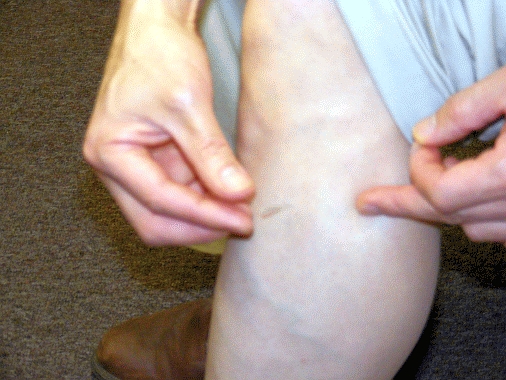Acupuncture
Dr Fei Yi Traditional Chinese Medicine
 Acupuncture and herbal medicine comprise a comprehensive health
care system. This system was developed in china and
has a history of over 2,500 years. It is a form of
logical, rational thinking alien to the west because
it is deeply rooted in a philosophy that has developed
its own perception of body, health and disease.
Chinese medicine is very different from western
medicine. The western physician starts with a symptom,
then searches for the underlying mechanism, a precise
cause for a specific disease. The treatment is focus
on that particular disease. By contrast, Chinese
physician directs his or her attention to the complete
physiological and psychological individual. All
relevant information, including the symptom as well as
the patient's other general characteristics, are
gathered and woven together until it forms what
Chinese medicine calls "pattern of disease". This
pattern of disharmony describes a situation of
"imbalance" in a patient's body. Instead of focus on
treating a specific disease, Chinese medicine manages
to balance the whole body system to treat the problem.
Acupuncture and herbal medicine comprise a comprehensive health
care system. This system was developed in china and
has a history of over 2,500 years. It is a form of
logical, rational thinking alien to the west because
it is deeply rooted in a philosophy that has developed
its own perception of body, health and disease.
Chinese medicine is very different from western
medicine. The western physician starts with a symptom,
then searches for the underlying mechanism, a precise
cause for a specific disease. The treatment is focus
on that particular disease. By contrast, Chinese
physician directs his or her attention to the complete
physiological and psychological individual. All
relevant information, including the symptom as well as
the patient's other general characteristics, are
gathered and woven together until it forms what
Chinese medicine calls "pattern of disease". This
pattern of disharmony describes a situation of
"imbalance" in a patient's body. Instead of focus on
treating a specific disease, Chinese medicine manages
to balance the whole body system to treat the problem.
What Acupuncture involves
Acupuncture treatment involves the insertion of very thin needles into some specific point on the body. The needles are sterile and disposable.
Treatments
Treatments last thirty to sixty minutes. The course of treatment depends upon each individual's condition. Generally from one to six treatments for acute conditions and five to twenty treatments fro chronic disorders. Herbal medicine and acumassage may be used when indicated. Since Chinese medicine focus on the whole body, dietary, lifestyle habits and exercise will be discussed during the treatment.
How Acupuncture works
Acupuncture is based on Chinese theories of the flow of Qi (energy) and blood through a channel pathway which is similar to but not identical to the nervous and blood circulatory system. Diseases are developed when a disruption of harmonious flow of Qi and blood. Acupuncture can regulate the energy flow and restore the harmonious energetic balance of the body.
Although much of the mechanism of acupuncture remain unclear when interpreted by modern medical science, recent studies have shown that acupuncture can increase numerous naturally occurring substance in the body that facilitate healing and maintain the body's internal balance. For instance, acupuncture can stimulate the release of neural transmitters such as endorphin and enkephalin which block pain sensory pathway to eliminate the pain, elevate mood and create deep relaxation. Stimulation by acupuncture may also activate the hypothalamus and pituitary gland, resulting in a broad spectrum of systemic effects. Some evidences also indicate that acupuncture can regulate blood circulation and improve immune resistant level in the body. As more research are being done on this field, hopefully in the near future, we can understand more of this ancient therapy.
